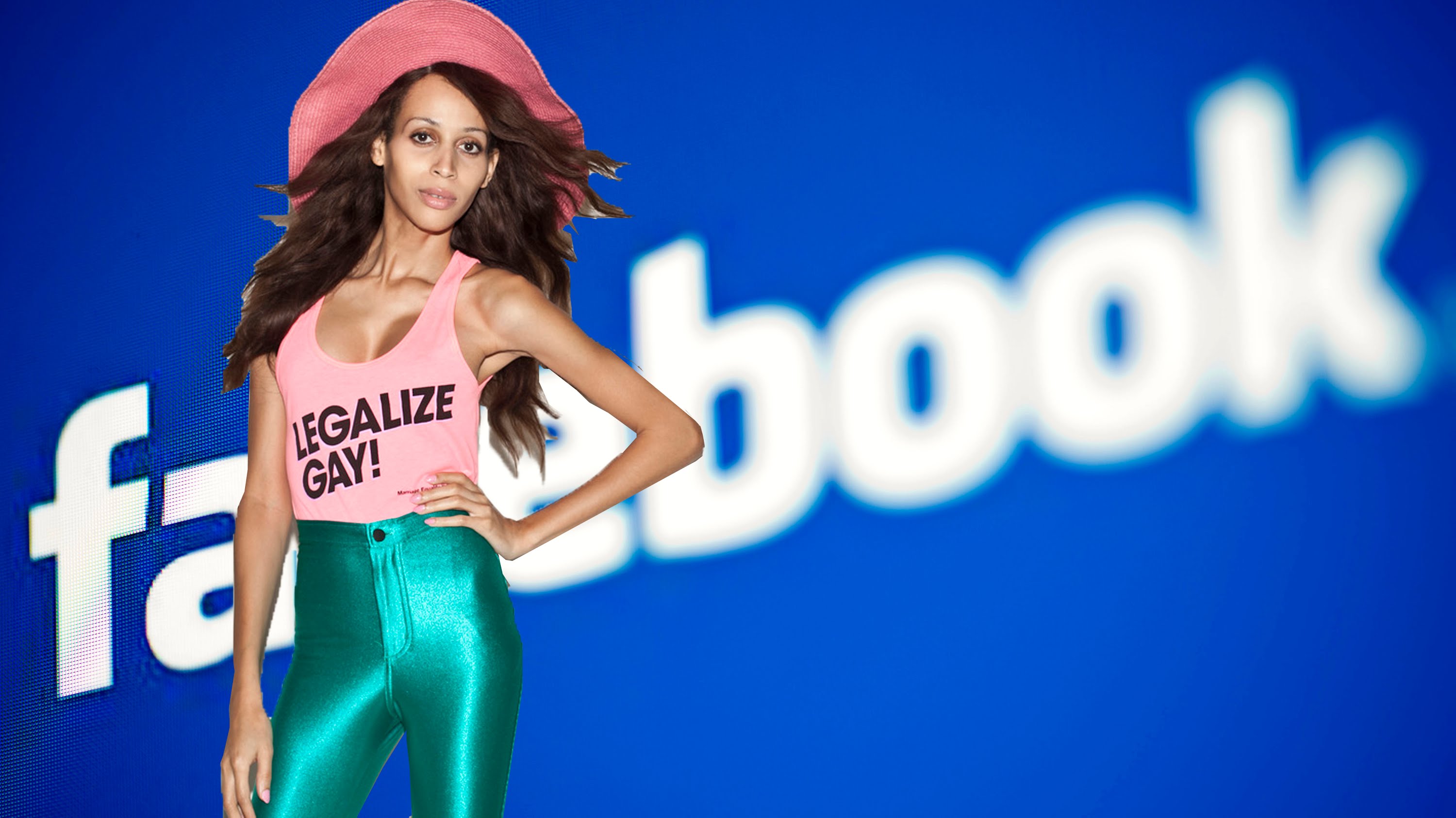Facebook has an identity problem. In fact, I would go as far as to say that they are a Trans platform. Why Trans? Well, they claim that they are a Tech Platform but they “identify” as a Publisher. They want to have their cake and eat it too. They want the ability to censor that comes with being a publisher BUT they also want the legal protection that goes with being a Tech Platform.
Facebook has invoked its free speech right as a publisher, insisting its ability to smear users as extremists is protected, but its legal immunity thus far has rested on a law which protects platforms, not publishers. Which is it?
Facebook has declared it has the right, as a publisher, to exercise its own free speech and bar conservative political performance artist Laura Loomer from its platform. Even calling her a dangerous extremist is allowed under the First Amendment, because it’s merely an opinion, Facebook claims in its motion to dismiss the lawsuit filed by Loomer.
This is a problem because the legal defence that they are using to justify their disgusting treatment of Laura Loomer goes against everything they have said about themselves in the past.
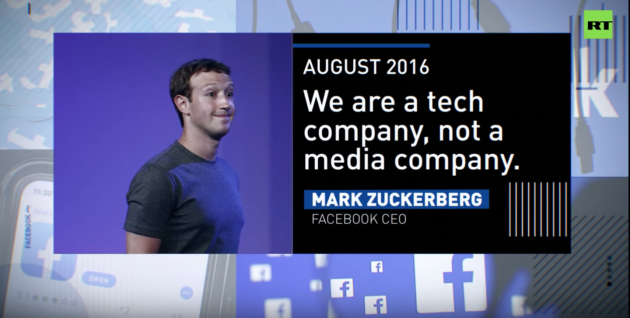
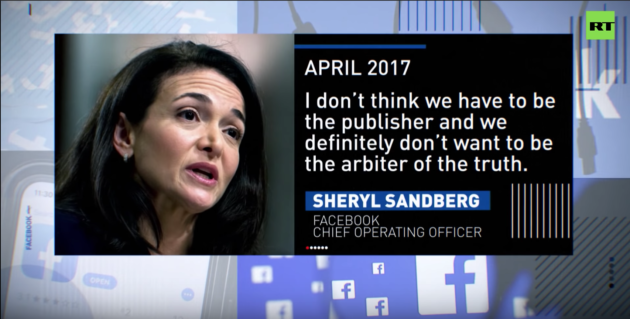
In the past Facebook have been very clear that they are a Tech company that provides a platform for others to use. However increasingly they have censored the speech of users on their platform and the censorship has been politically motivated.
Conservatives are being silenced in ever-increasing numbers on Facebook. The more popular they are and the more followers they have the more likely it is that they will be deplatformed like Laura Loomer.
Now that Laura Loomer has fought back Facebook is trying to claim that it is a publisher with the right to censor whoever it wants.
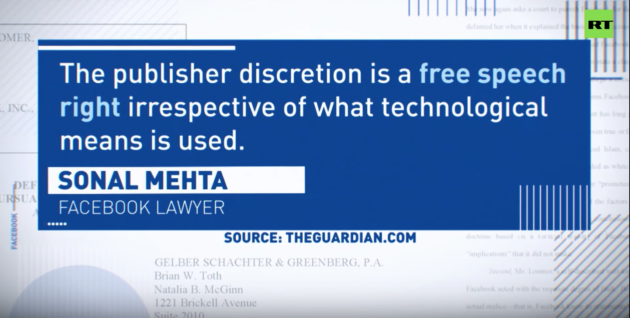
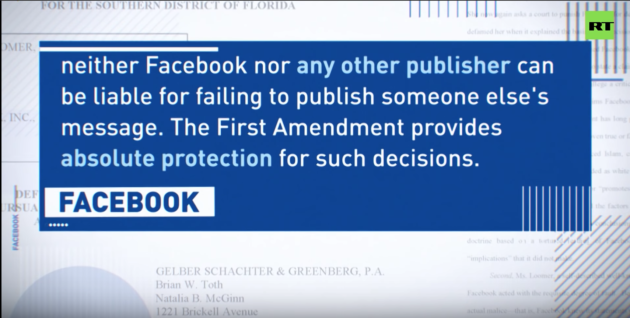
[…] Now, the not-so-neutral content platform has redefined itself as a publisher equipped with a whole new set of rights, but bereft of the protections that have kept it safe from legal repercussions in the past.
“Under well-established law, neither Facebook nor any other publisher can be liable for failing to publish someone else’s message,” Facebook’s motion to dismiss Loomer’s defamation suit reads, justifying its decision to ban her from the platform. It also points out that terms like “dangerous” or “promoting hate” cannot be factually verified and are thus constitutionally protected opinions for a publisher, while also claiming it never applied either term to Loomer, despite banning her from its platform under its “dangerous individuals” policy.
By using the publisher defence to try to defeat Loomer, Facebook has made themselves vulnerable to attack. While they identified as a Tech Platform they were protected from claims of defamation and liability for what other people publish on their platform but if they are found to be publishers that protection will be removed. They will have opened Pandora’s box.
Platforms like Twitter, Google, and – until now, apparently – Facebook are protected from the legal consequences of their users’ speech by section 230 of the Communications Decency Act. Facebook even makes reference to section 230 later in its motion, suggesting that it is trying to have its cake and eat it too.
[…] Facebook could go back to life as a platform, if it was willing to sacrifice its usefulness to those in power by allowing some political speech to reach users and blocking the rest.
rt.com/usa/469209-facebook-publisher-laura-loomer-lawsuit

